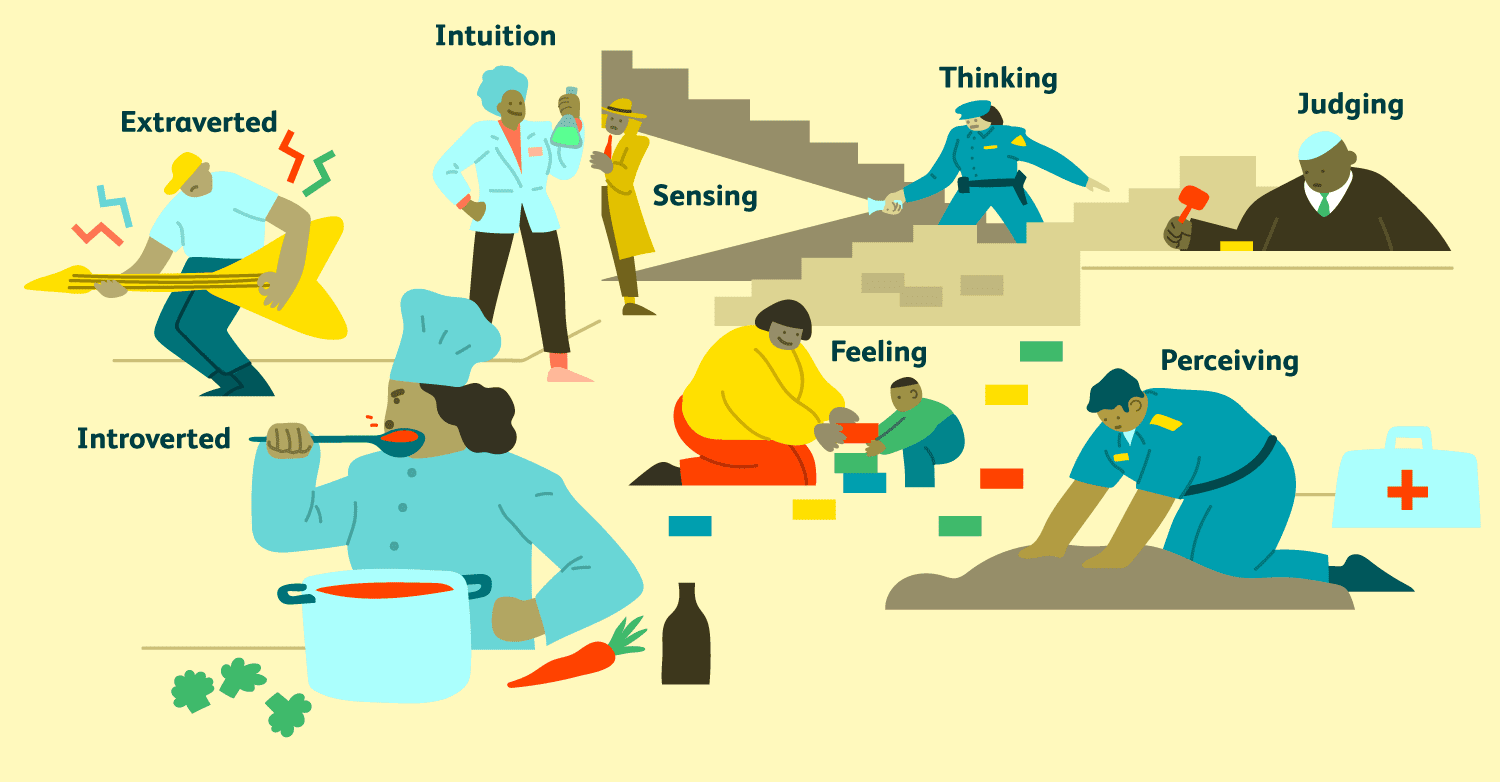
FAQ About Myers-Briggs Personality Type Test

Are there any limitations or criticisms of the Myers-Briggs test?
Yes, the Myers-Briggs Type Indicator (MBTI) has faced several limitations and criticisms over the years. Here are some of the key points raised by critics:
- Lack of Scientific Validity: The MBTI has been criticized for its limited empirical evidence and lack of strong scientific support. Critics argue that the test's theoretical foundations are not aligned with contemporary personality theories and that its psychometric properties are not robust enough.
- Dichotomous Categorization: The MBTI assigns individuals to one of two opposing preferences on each dimension, creating distinct types (e.g., extraversion vs. introversion). This oversimplification of complex personality traits into binary categories may fail to capture the full richness and variability of human personality.
- Poor Test-Retest Reliability: Research suggests that individuals may receive different results when retaking the MBTI, which questions its test-retest reliability. This inconsistency raises concerns about the stability and consistency of the test over time.
- Limited Predictive Power: The ability of the MBTI to predict real-world outcomes such as job performance, academic success, or relationship satisfaction has been found to be modest at best. Critics argue that the MBTI does not have strong predictive validity for these important life domains.
- Ethical and Misuse Concerns: The MBTI has been criticized for potential misuse in employment and selection processes. Its use as a basis for making hiring decisions or assessing job suitability is controversial, as it may perpetuate stereotypes and unfairly impact individuals.
- Lack of Comprehensive Personality Coverage: The MBTI focuses on four dimensions and 16 types, leaving out other important personality traits and dimensions. Critics argue that it neglects critical aspects such as emotional stability, conscientiousness, and openness to experience, which are addressed by other personality models like the Big Five.
- Limited Cultural and Contextual Adaptability: Some critics argue that the MBTI's origins and cultural biases limit its applicability across different cultural contexts. The instrument's development in Western cultures raises concerns about its universality and generalizability to diverse populations.
